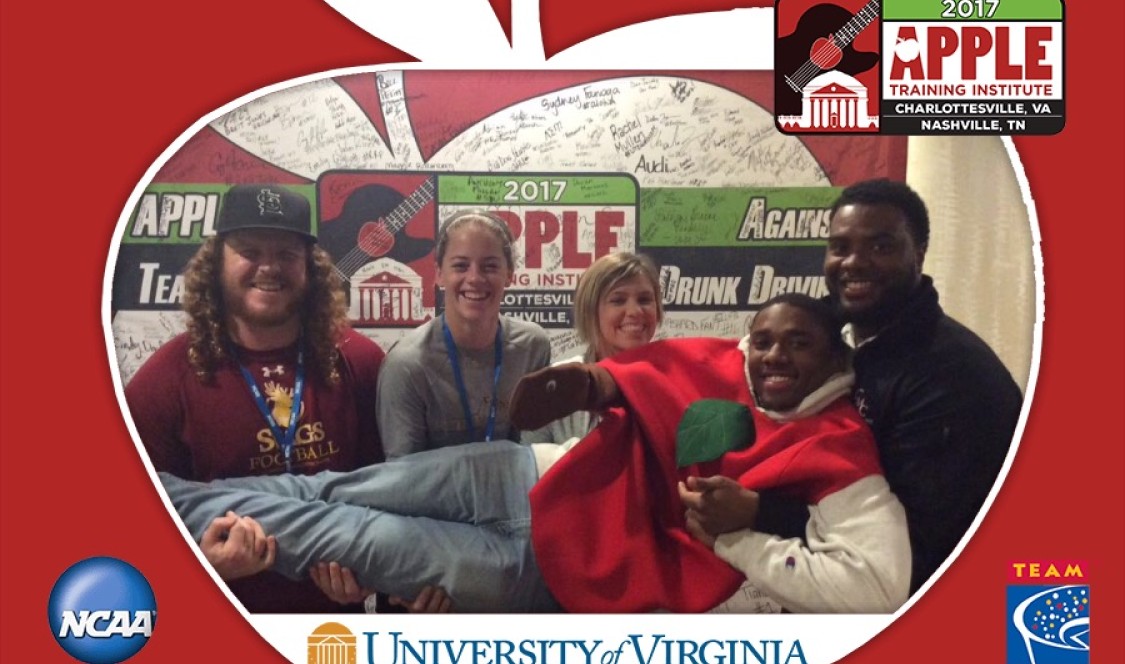In an effort to increase student awareness on campus regarding substance abuse prevention and health promotion, five individuals (three current students and two administrators) represented Claremont-Mudd-Scripps Athletics at the APPLE Institute from Jan. 20-22 in Nashville, Tenn.
The APPLE Institute is a three-day training session for student-athletes and campus administrators. The training each year is dedicated to substance abuse prevention and health promotion of college athletes, and is sponsored by the NCAA Sport Science Institute and the University of Virginia Gordie Center. Representatives and students from more than 500 NCAA institutions have attended the APPLE Conference since 1992 and have joined in on the movement to educate individuals on substance abuse prevention and health promotion. A total of 440 participants, speakers and staff from 76 NCAA member schools attended the two training institute weekends in 2017.
Margaret Loncki (CMC ’18 – women’s golf/soccer) and Owen Morrison (HMC ’18 – football) were the CMS student-athletes who attended, along with Clinton Hall (CMC ’20), an athletic training student assistant. Raechel Holmes ATC (CMS assistant athletic trainer) and Vince Greer, from CMC’s Dean of Students Office, were the administrators who attended on behalf of CMS.
“I am proud that students in our community have come together to lead and build awareness around this important issue by attending the APPLE Conference,” Terrance Tumey, CMS Director of Athletics, Physical Education and Recreation said.
Student-athletes and administrators at the conference work together to come up with solutions they can implement once back on campus.
The Apple Model identifies seven areas where athletics departments can reduce substance abuse among student-athletes, and provides best practices for each area: recruitment; expectations and attitudes; policies; education; drug testing; sanctioning; and referral and counseling.
Before attending the conference, each athletics department completes a survey about the department’s current practices and policies in each of the seven prevention areas. The UVA Gordie Center staff then provides feedback and areas for improvement. Athletics departments then use that information to create an action plan going forward.
“The APPLE Institute really helped us to identify what students wanted and needed so we could create a plan of action,” Holmes said. “It was also helpful to see what other institutions are doing and how they are doing it.”
CMS Athletics plans to form an APPLE Council on campus, with representatives from each of CMS’ 21 varsity teams on the council, to set forth program goals and implement strategy.
“Social norms was an important topic discussed at the conference," Loncki said. “Bringing back a social norms campaign to inform students of what is actually happening on our campus would likely be one of the most effective tools to reduce unsafe practices on our campuses.”

